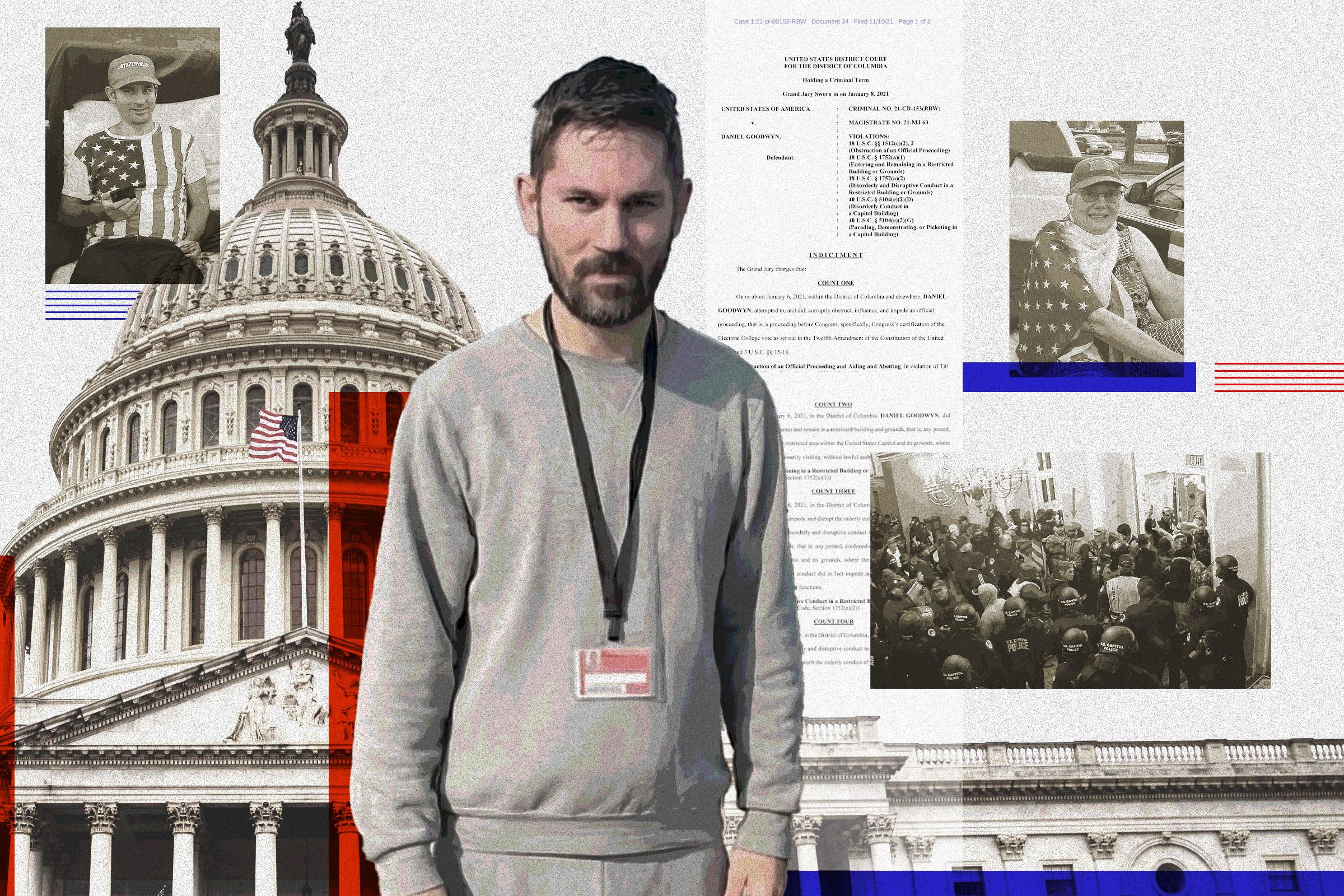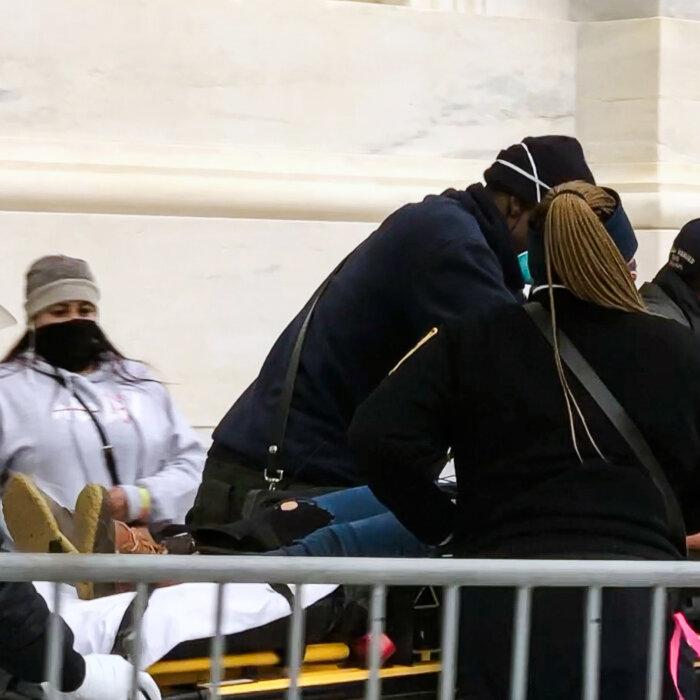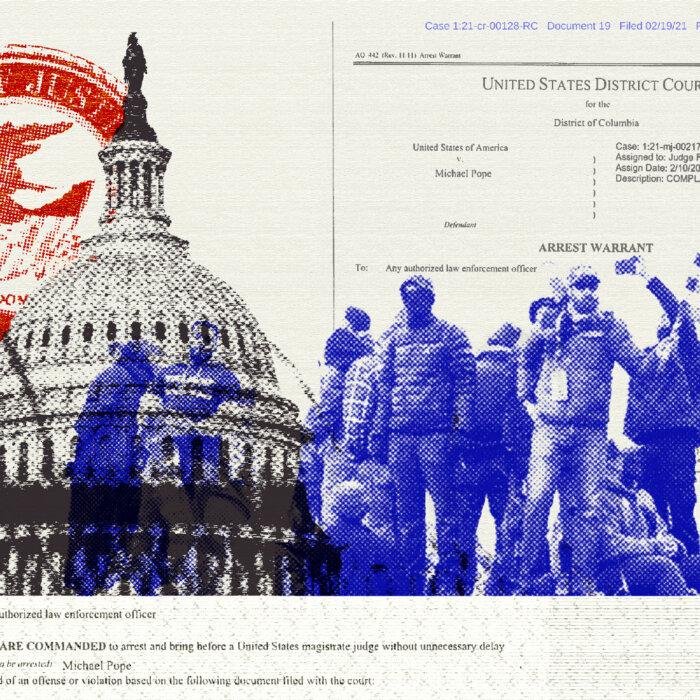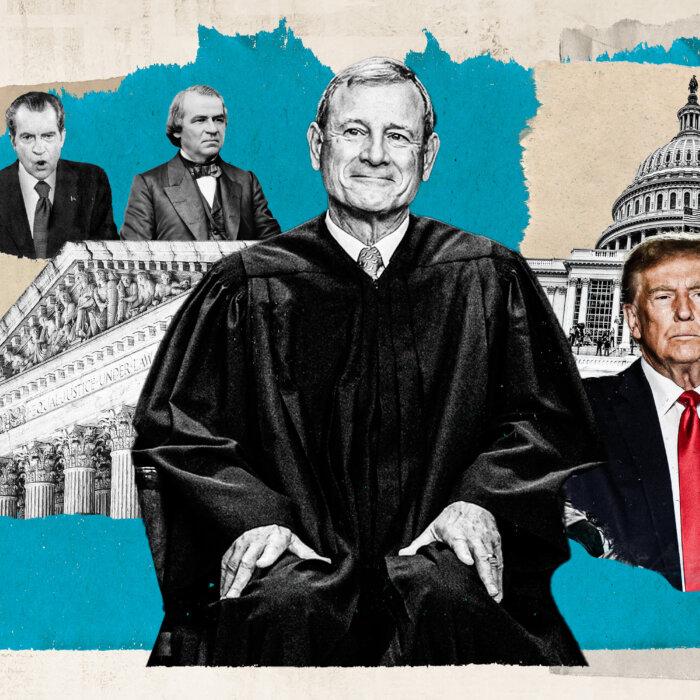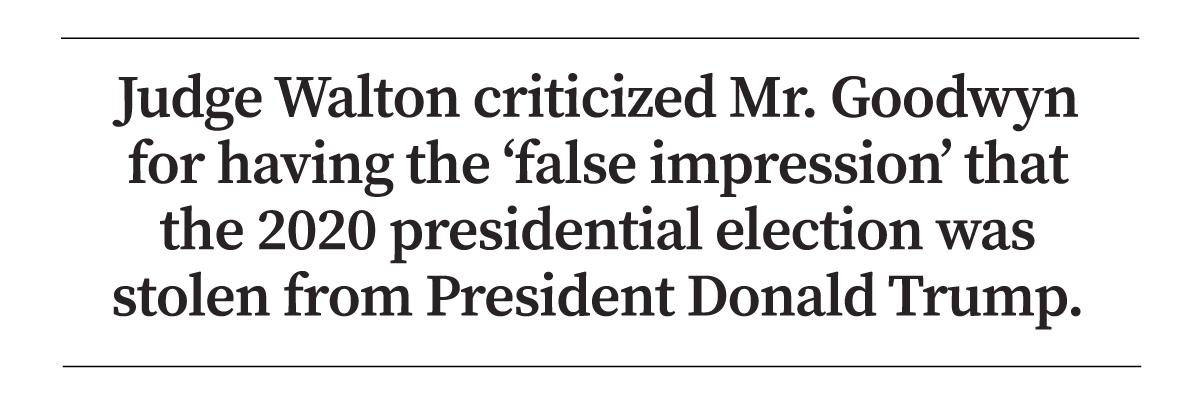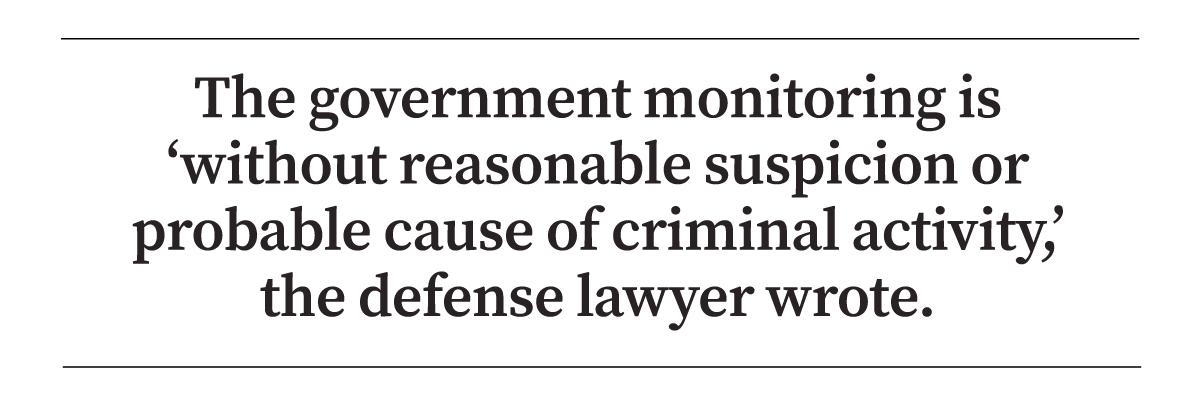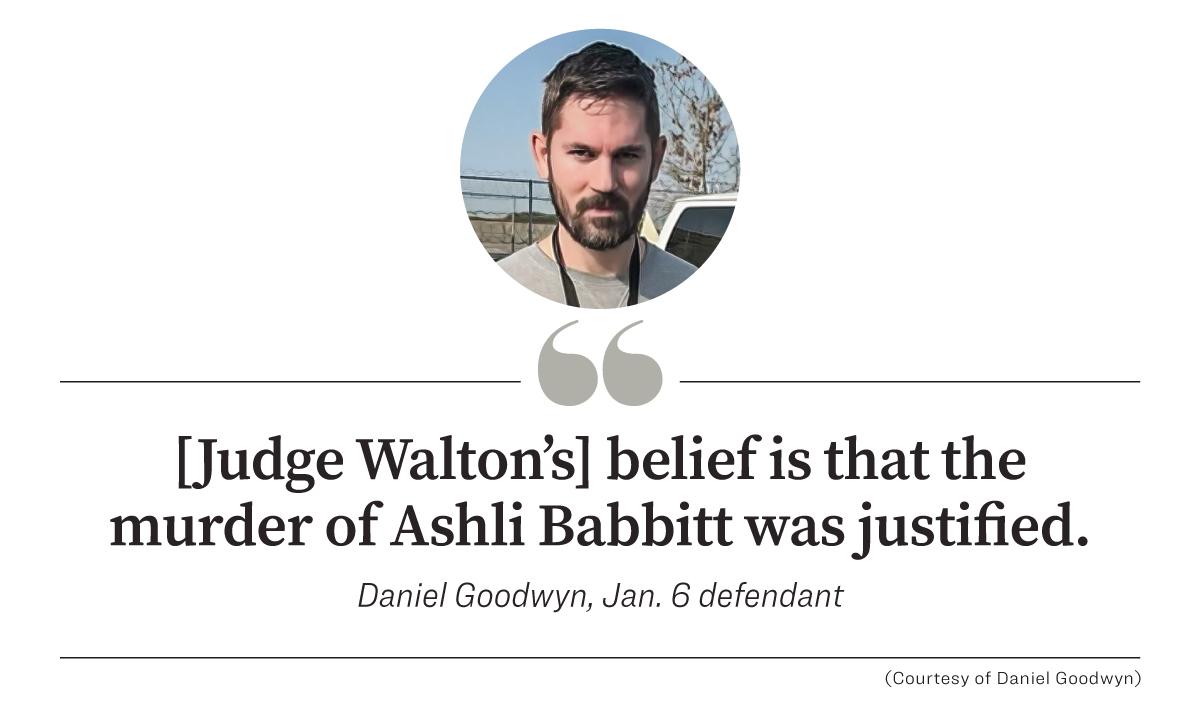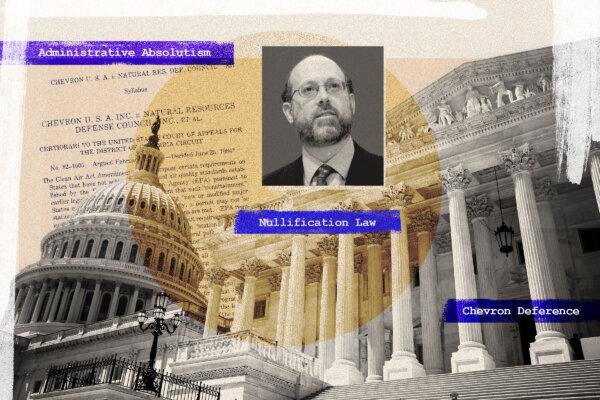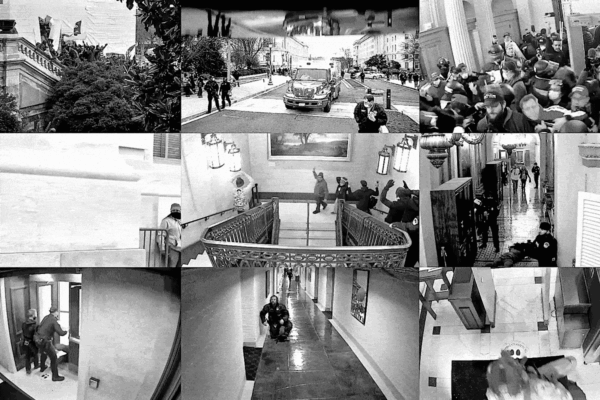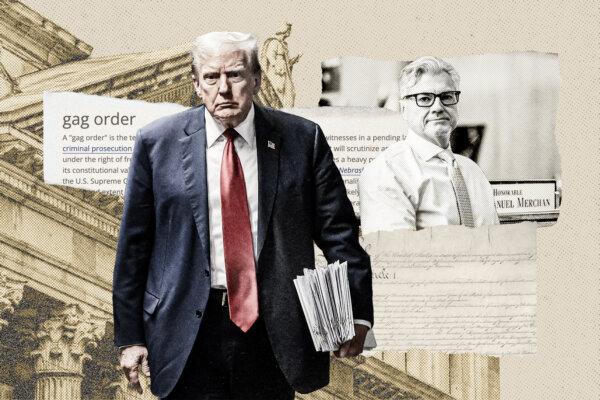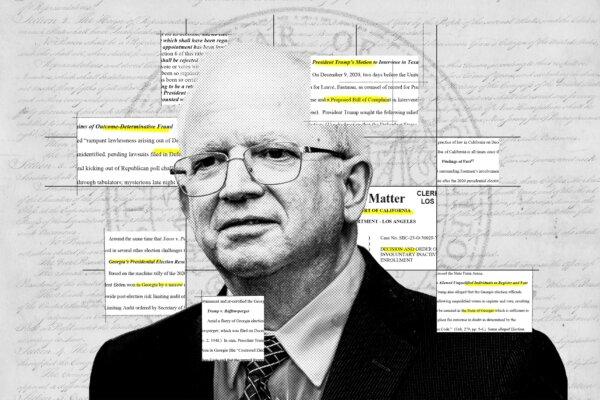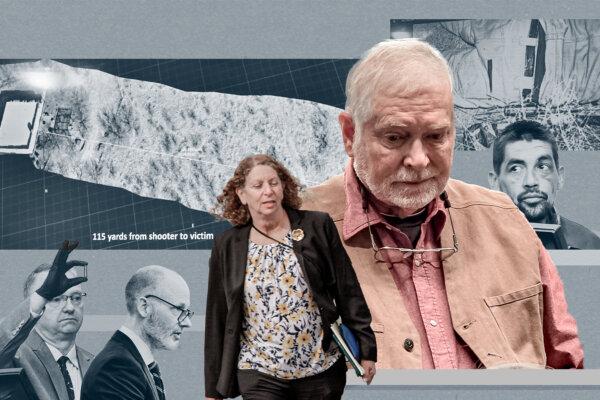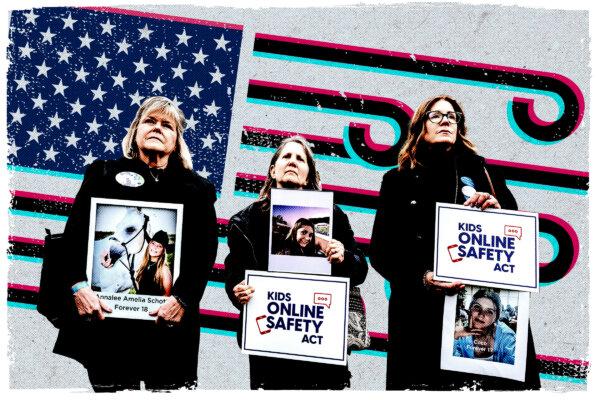A sentencing requirement that Jan. 6 defendant Daniel Goodwyn have his computer monitored by the government for “disinformation” has been vacated by the U.S. Court of Appeals for the District of Columbia Circuit.
“Judge Walton had no legal basis to issue the special condition,” Carolyn Stewart, Mr. Goodwyn’s attorney, told The Epoch Times in an April 3 email.
A three-judge panel of the U.S. Circuit Court of Appeals ruled the judge “plainly erred” in imposing the computer monitoring. Judges Gregory Katsas, Neomi Rao, and Bradley Garcia issued a per curiam order vacating the monitoring provision.
Judge Walton, when imposing a 60-day prison sentence in June 2023, said Mr. Goodwyn spread “disinformation” during a broadcast of “Tucker Carlson Tonight” on March 14, 2023. Judge Walton ordered that Mr. Goodwyn’s computer be subject to “monitoring and inspection” by a probation agent to check if he spread Jan. 6 disinformation during the term of his supervised release.
The judge also referred to Mr. Goodwyn spreading alleged “misinformation,” using the term interchangeably with “disinformation.”
60 Days Behind Bars
On June 6, 2023, Judge Walton sentenced Mr. Goodwyn to 60 days in prison, a year of supervised release, a $2,500 fine, and a $500 restitution payment.Mr. Goodwyn asked for a sentence of time served with three months of supervised release. He received credit for three weeks he spent in pretrial detention, but not for the 13 months he spent in home detention. He completed his incarceration at the Federal Correctional Institution at Bastrop, Texas, on Aug. 25, 2023.
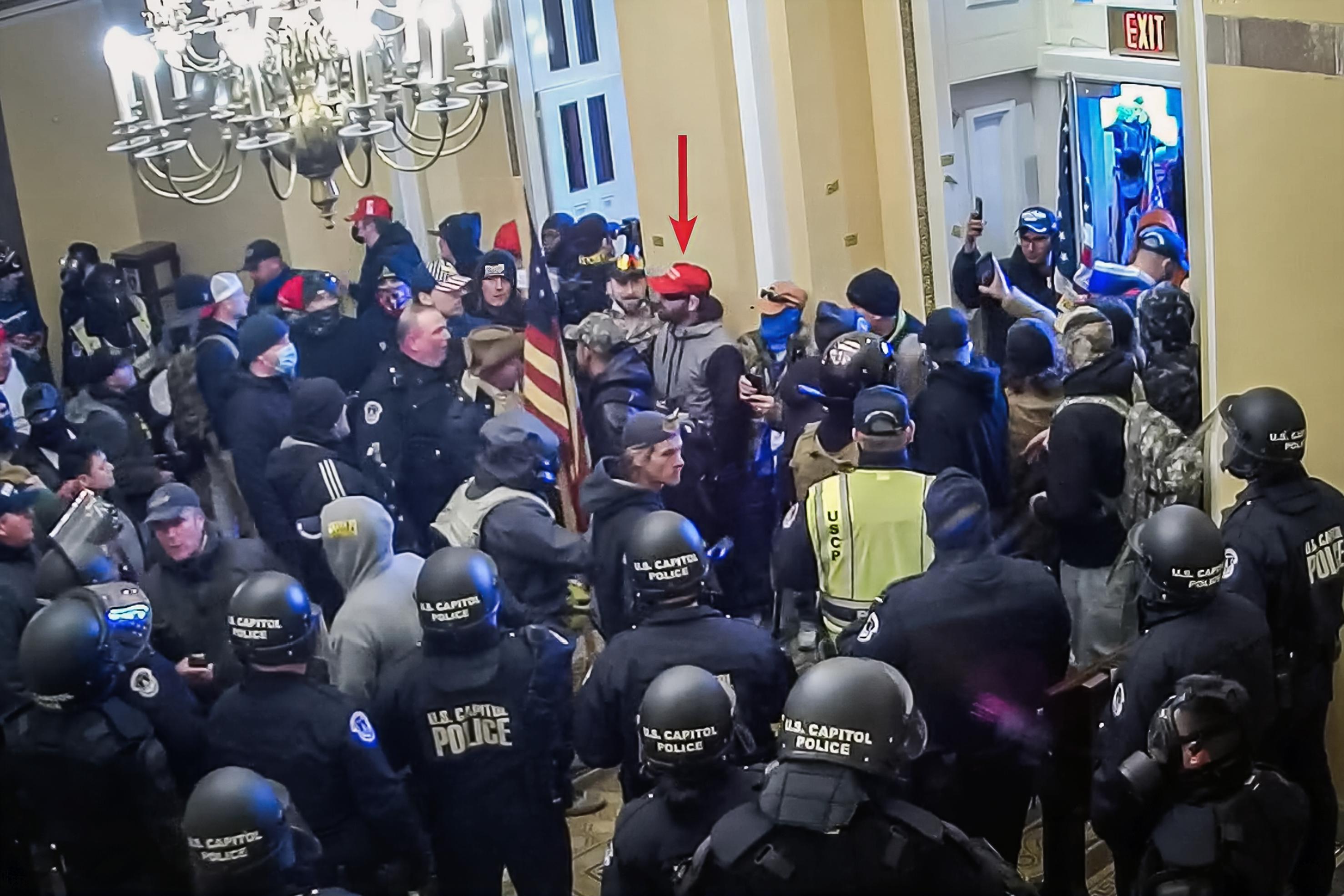
Mr. Goodwyn said the Court of Appeals made the correct decision.
“Judge Walton’s imposition of the computer monitoring restriction is inconsistent with American law and tradition,” Mr. Goodwyn told The Epoch Times. “It’s unbelievable, in my opinion, that he would unlawfully order feds to spy on me in direct violation of the First and Fourth Amendments, under threat of locking me back up in prison.”
Mr. Goodwyn said he was at the U.S. Capitol on Jan. 6, 2021, as a citizen journalist for StopHate.com. He entered the building through the Senate wing door at 3:32 p.m. and spent 36 seconds inside the Capitol, security video shows.
Prosecutors and the judge faulted Mr. Goodwyn for using a bullhorn on Jan. 6, 2021, “to incite other rioters to go into the Capitol” and for saying, “We need critical mass for this to work.” They said Mr. Goodwyn evaded a police officer’s attempt to stop him from entering and initially ignored the officer’s command to exit the building.
Ms. Stewart said her client was inside the Capitol for less than a minute and did not assault anyone or vandalize property.
It was Mr. Goodwyn’s appearance on Mr. Carlson’s Fox News program that drew some of the sharpest fire from Judge Walton. He called Mr. Carlson a “lightning rod” who “has said and done things” that the judge thinks “clearly have been divisive.”
Mr. Carlson gave the impression “that individuals who have been charged in reference to the events on January 6th of ‘21 have been treated unfairly,“ the judge said. ”And I see no evidence that, in fact, was the case.”
When being interviewed by Mr. Carlson, Mr. Goodwyn “made no attempt to correct the record,” Judge Walton said. “And when Carlson suggested that all the defendant did was go into the Capitol and walk around for less than a minute and leave, that just wasn’t correct. And that misinformation that is disseminated to the American public has contributed to the discord that now exists in our country in reference to the presidential election and what occurred on January 6th,” he said.
The judge said: “[Mr. Goodwyn] could have come clean and indicated exactly what he did when Tucker Carlson was minimizing the extent of what he did. Because he did more than what Tucker Carlson indicated. And he didn’t say anything to correct that.”
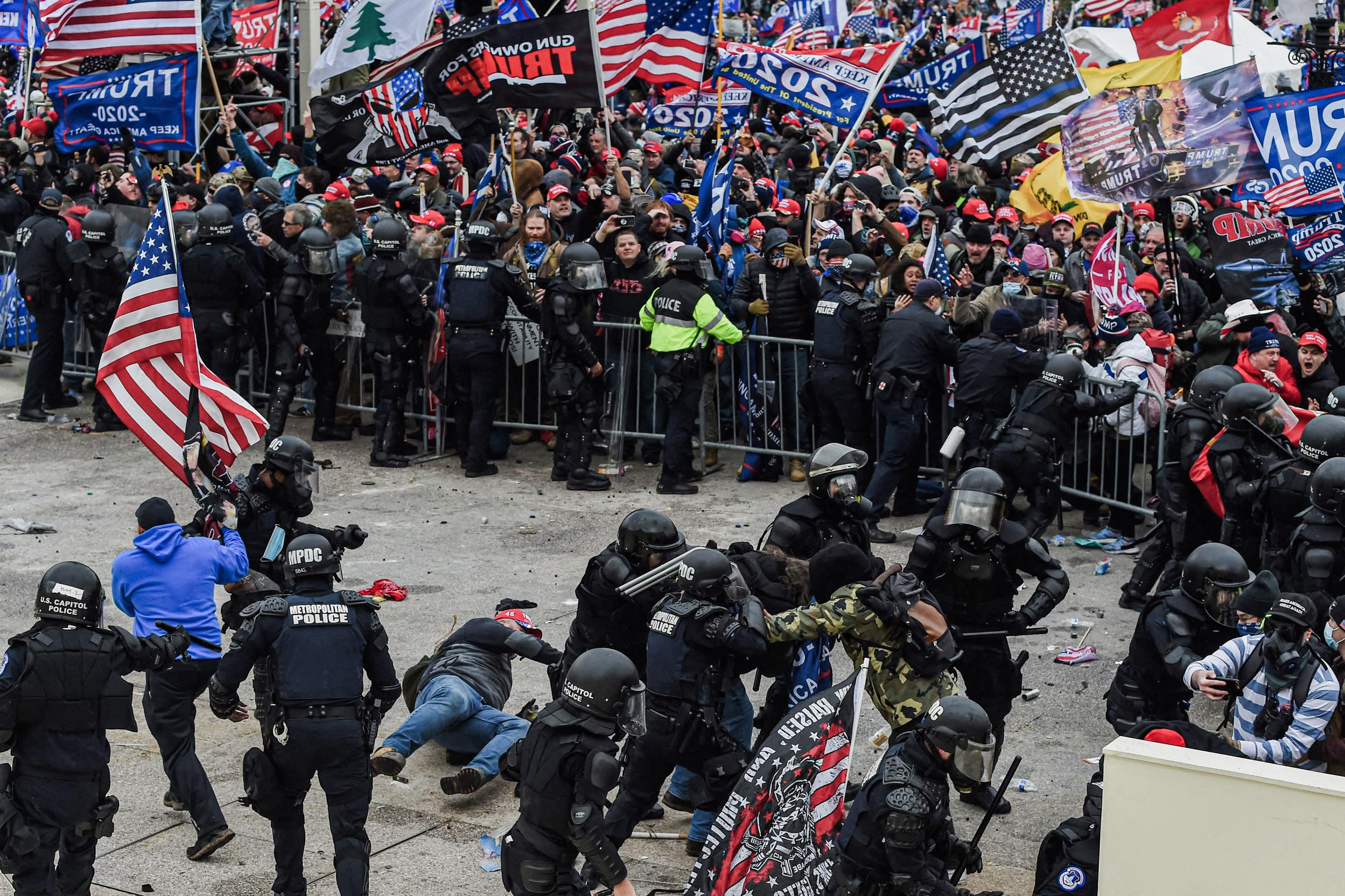
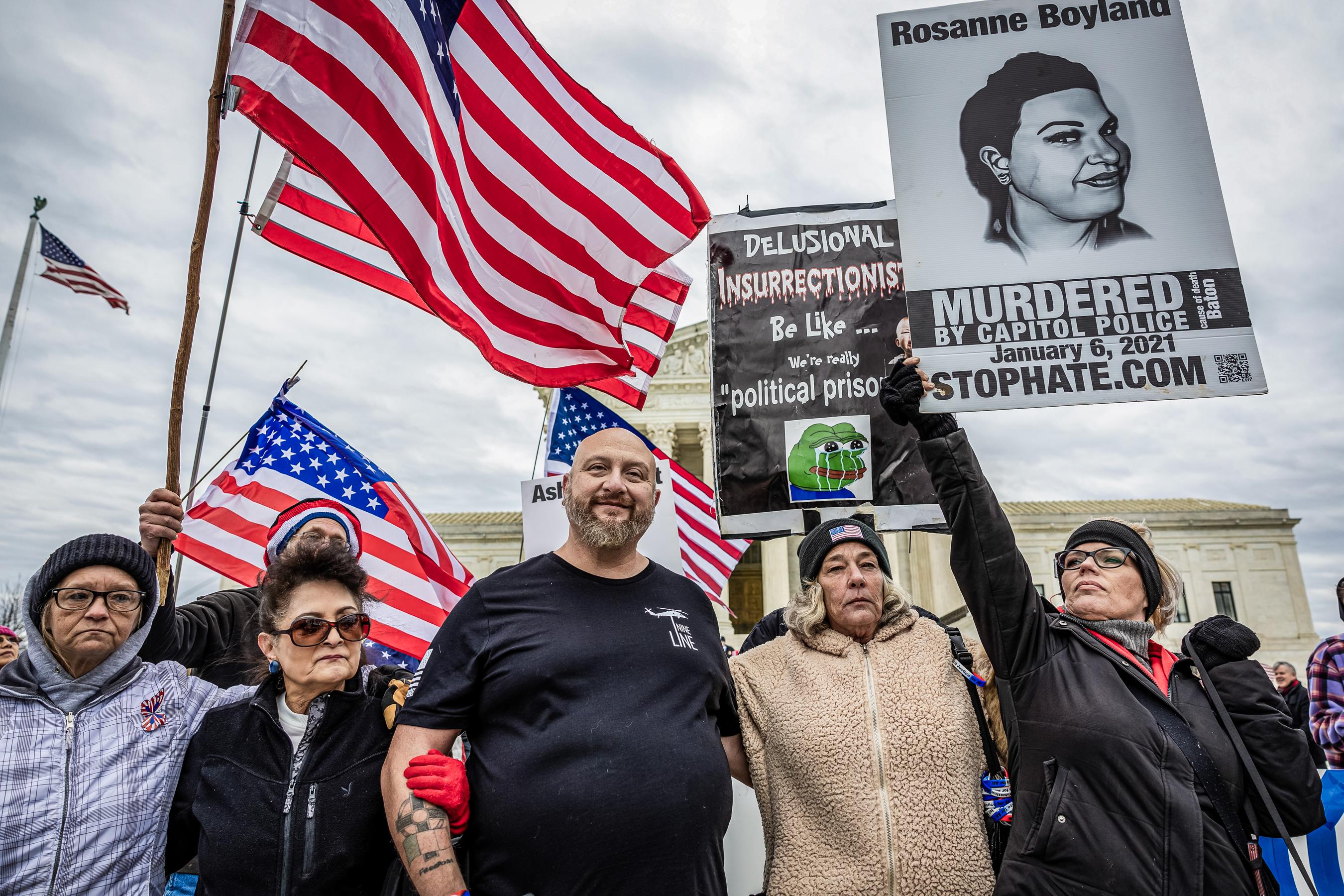
‘Monitoring and Inspection’
The judge said Mr. Goodwyn should be monitored during his supervised release to determine if he is spreading disinformation on social media.“Since he has used social media in order to provide what I consider to be disinformation about this situation,” the judge said, “I would require that he permit his computer use to be subject to monitoring and inspection by the probation department to see if he is, in fact, disseminating information of the nature that relates to the events that resulted in what occurred on January 6th of 2021.”
Ms. Stewart filed an appeal of the computer-monitoring provision on June 30, 2023. In her appeal brief, Ms. Stewart said there is no law related to “disinformation” and that Mr. Goodwyn’s computer use is unrelated to his single-count trespassing conviction.
The government monitoring is “without reasonable suspicion or probable cause of criminal activity,” she wrote, “where computer searches for undefined ‘disinformation’ are not reasonably related to any crime.”
The Court of Appeals agreed, writing that Judge Walton “plainly erred in imposing the computer-monitoring condition without considering whether it was ‘reasonably related’ to the relevant sentencing factors and involved ‘no greater deprivation of liberty than is reasonably necessary’ to achieve the purposes behind sentencing.”
The mandate, which sent the issue back to Judge Walton, said if he still wants to impose computer monitoring, he must explain his legal reasoning, develop a record to support the provision, and ensure that what he orders follows federal supervised-release law and accords with constitutional protections.
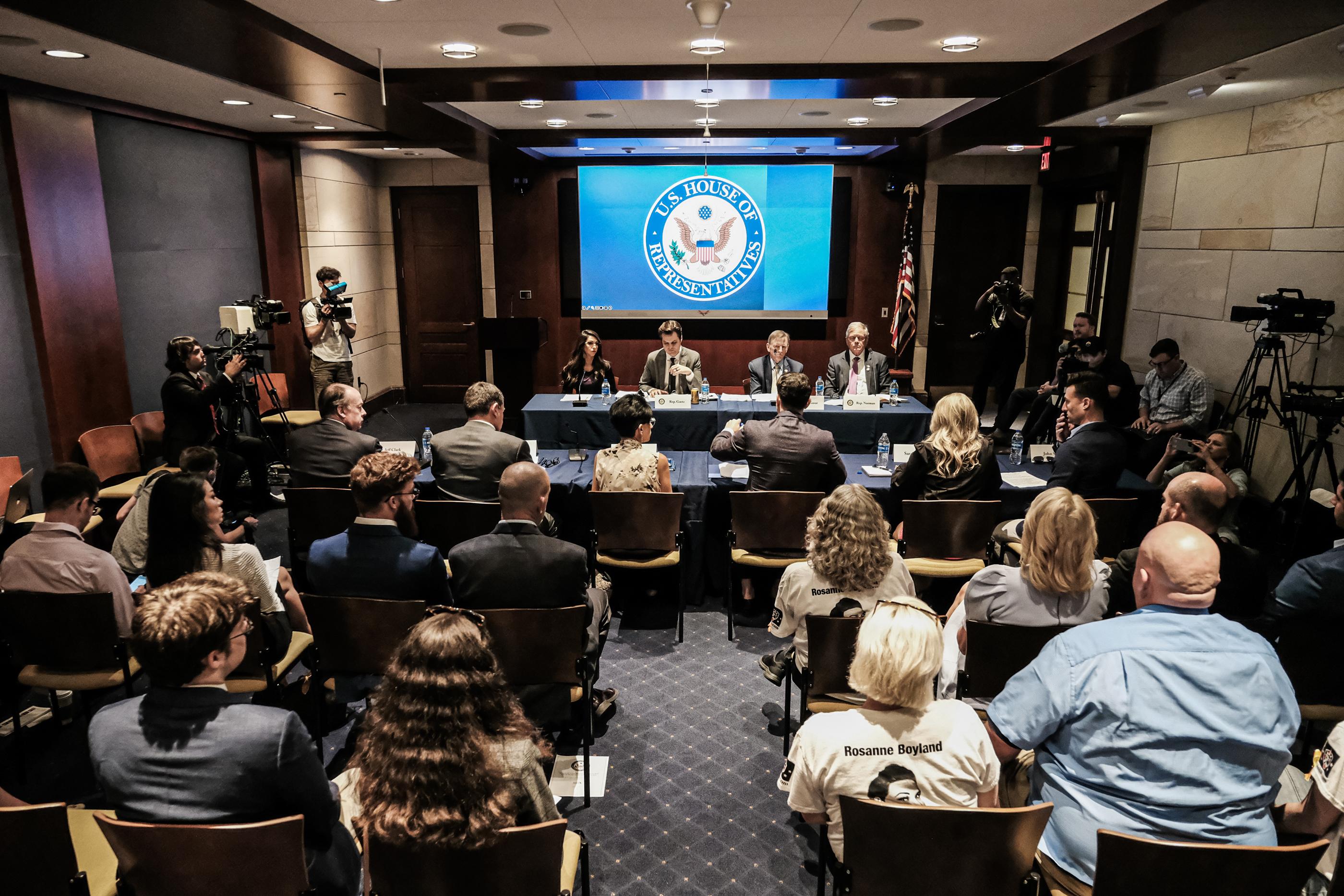
While the Court of Appeals order could open the door for Judge Walton to try to impose the monitoring again, Ms. Stewart said she views the order more “as a check and balance that he can’t just make himself the ‘Ministry of Truth’ again.”
After Mr. Goodwyn finished his statement to the court, Judge Walton scolded him, claiming that he did not seem to care about the law enforcement officers who were injured on Jan. 6, 2021.
“And, you know, the police officers—you say you are not anti-police and I hope that is the case,” the judge said. “But, you know, to suggest that the only people who died that day were Trump supporters, that is just not true.”
“You are digging a hole for yourself,” Judge Walton said. “Keep on digging.”
‘Purportedly Assaulted’
Judge Walton criticized Mr. Goodwyn for speaking of people “who were purportedly assaulted by the police, and according to him, have died as a result of those encounters.”“I have seen no evidence that would indicate to me—and I have seen hours and hours of the videos of what took place that day—I have seen nothing that would indicate that the police did anything that would indicate they were acting excessively,” he said.
“The police were under assault. Several police officers, because of the violent nature of what they experienced, have committed suicide, another officer who died as a result of the trauma he experienced as a result of that.”
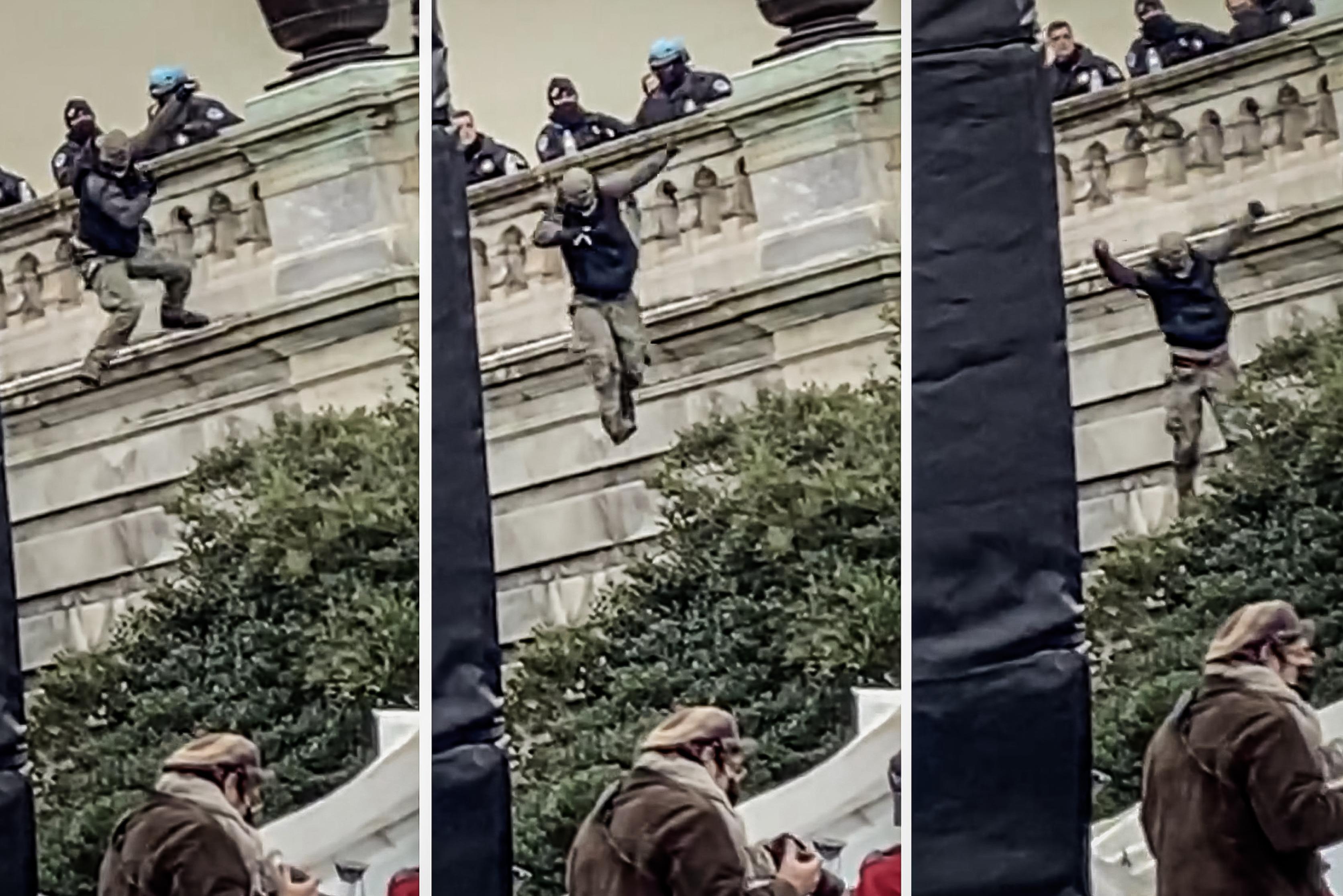
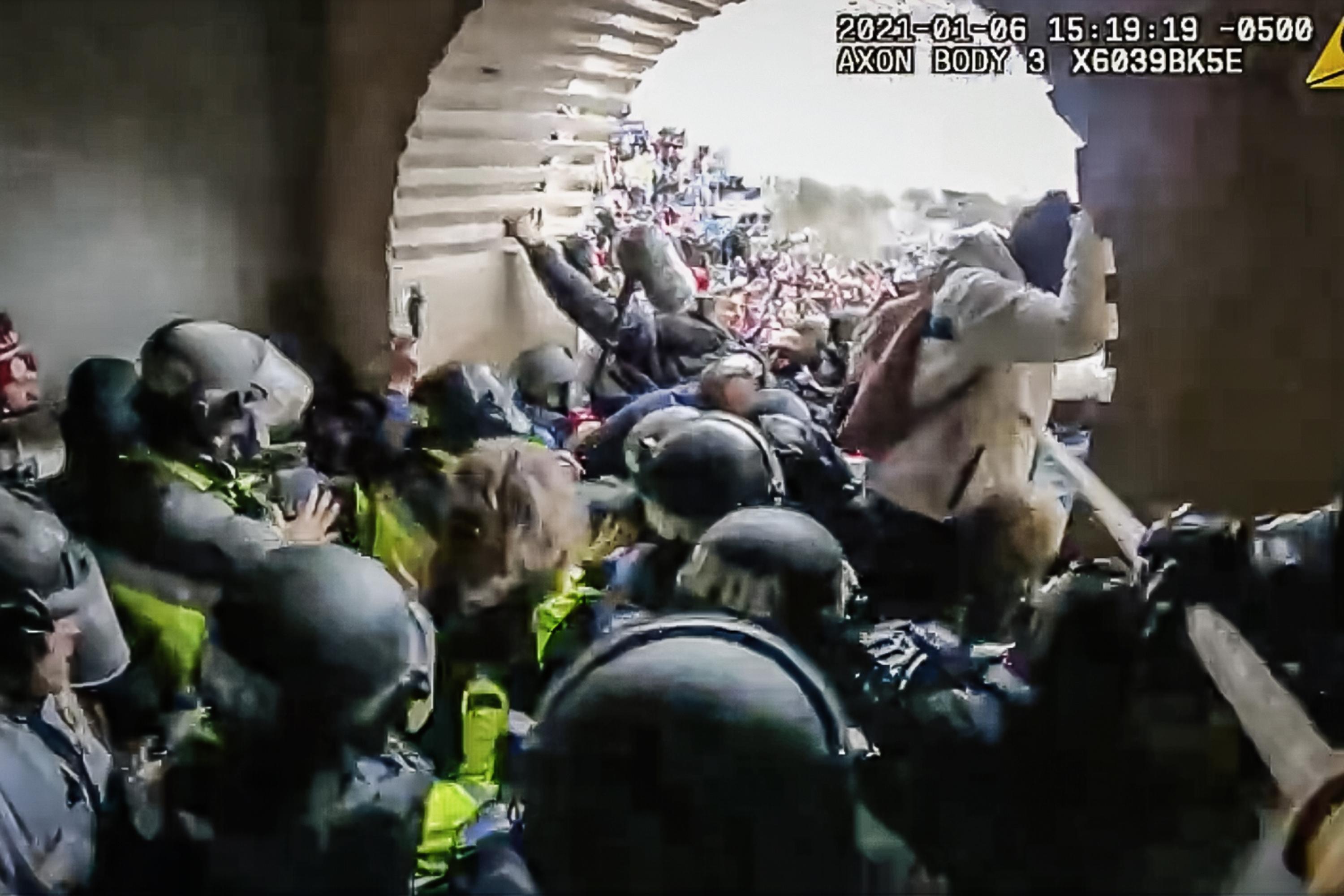
Judge Walton appeared to be referring to U.S. Capitol Police Officer Brian Sicknick, who died on Jan. 7, 2021, from what the Washington Office of the Chief Medical Examiner ruled was two strokes.
Some media reports at the time claimed that Mr. Sicknick had been struck in the head by a rioter armed with a fire extinguisher. That story was false, but it continues to circulate online. Mr. Sicknick’s death was ruled to be from natural causes. He collapsed while on duty at the Capitol after 10 p.m. on Jan. 6, 2021, and died the next day.
Ms. Boyland collapsed at the mouth of the Lower West Terrace tunnel after a witness said she was shot in the chest by a pepper ball fired by a police officer at the back of the tunnel. She was crushed under a pile of bodies when the crowd stampeded out of the tunnel in response to police deploying an unknown gas into the enclosed space.
Bystanders begged police to get Ms. Boyland medical aid as she turned cyanotic, but their cries were ignored. MPD Officer Lila Morris, who had taken a walking stick off of a rioter near the police line, used it to strike Ms. Boyland in the head and ribs at least three times.
Videos showed the blows caused blood to flow from Ms. Boyland’s nose and one eye. A wound above her right eye was visible on police bodycam video from inside the Capitol. No mention of the injury or the bleeding was made by emergency room doctors or the medical examiner.
Judge Walton also expressed the view that the shooting of Ms. Babbitt at 2:44 p.m. on Jan. 6, 2021, was justified. He got into a back-and-forth with Ms. Stewart and Mr. Goodwyn about the shooting.
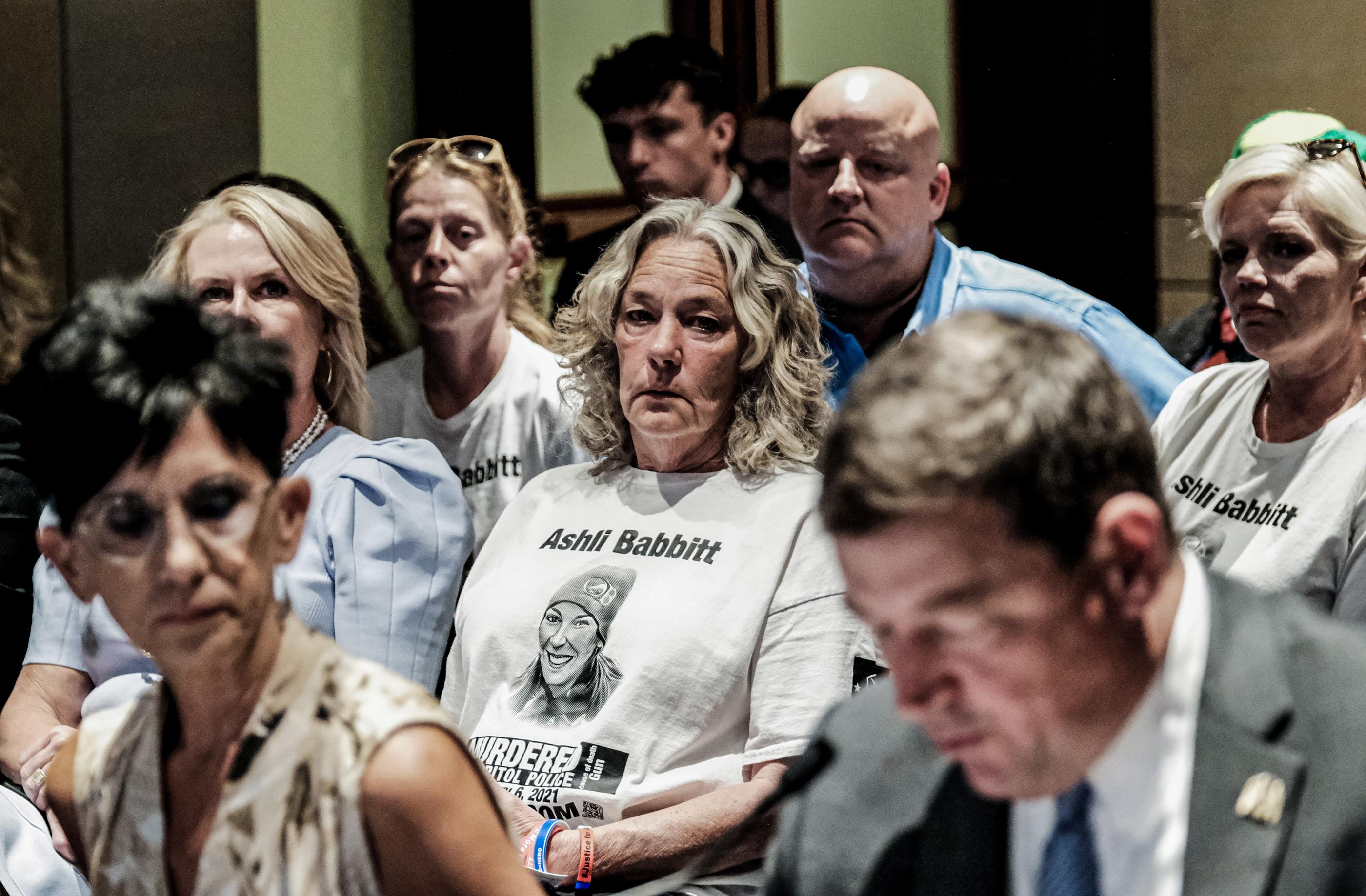
“He picked up a gun, he shot her. He shot her in the neck,” Ms. Stewart said. “She is dead. I personally find it offensive. I think it is murder.”
The judge did not agree.
“You should not have been—you cannot convince me that somehow what she was doing was somehow justified and the police did not have a justification for taking the actions that they took,” he said. “You can’t convince me of that.”
Judge Walton’s statements were cited in the $30-million wrongful-death lawsuit filed by Ms. Babbitt’s estate and her husband, Aaron Babbitt, against the federal government.
The DOJ said there is no evidence of district-wide bias against Jan. 6 defendants or Ms. Babbitt. “The single example plaintiff cites of one judge’s comments in a sentencing proceeding does not come close to establishing grounds to decline a venue transfer,” DOJ trial attorney Brian Boyd wrote in a court filing.
